-
EXECUTIVE SUMMARY
-
MARKET INTRODUCTION
-
Definition
-
Scope of the Study
- Research Objective
- Assumptions
- Limitations
-
RESEARCH METHODOLOGY
-
Overview
-
Data Mining
-
Secondary Research
-
Primary Research
- Primary Interviews and Information Gathering Process
- Breakdown of Primary Respondents
-
Forecasting Model
-
Market Size Estimation
- Bottom-Up Approach
- Top-Down Approach
-
Data Triangulation
-
Validation
-
MARKET DYNAMICS
-
Overview
-
Drivers
-
Restraints
-
Opportunities
-
MARKET FACTOR ANALYSIS
-
Value Chain Analysis
-
Porter’s Five Forces Analysis
- Bargaining Power of Suppliers
- Bargaining Power of Buyers
- Threat of New Entrants
- Threat of Substitutes
- Intensity of Rivalry
-
COVID-19 Impact Analysis
- Market Impact Analysis
- Regional Impact
- Opportunity and Threat Analysis
-
GLOBAL LOW E GLASS MARKET,BY GLAZING
-
Overview
-
Single Glazing
-
Double Glazing
-
Triple Glazing
-
GLOBAL LOW E GLASS MARKET,BY COATING TYPE
-
Overview
-
Solar control low-E coating
-
Passive low-E coating
-
Others
-
GLOBAL LOW E GLASS MARKET,BY END USE
-
Overview
-
Building and Construction
-
Automotive
-
Others
-
GLOBAL LOW E GLASS MARKET, BY REGION
-
Overview
-
North America
- US
- Canada
-
Europe
- Germany
- France
- UK
- Italy
- Spain
- Rest of Europe
-
Asia-Pacific
- China
- India
- Japan
- South Korea
- Australia
- Rest of Asia-Pacific
-
Rest of the World
- Middle East
- Africa
- Latin America
-
COMPETITIVE LANDSCAPE
-
Overview
-
Competitive Analysis
-
Market Share Analysis
-
Major Growth Strategy in the Global Low E Glass Market,
-
Competitive Benchmarking
-
Leading Players in Terms of Number of Developments in the Global Low E Glass Market,
-
Key developments and Growth Strategies
- New ProductLaunch/Service Deployment
- Merger &Acquisitions
- Joint Ventures
-
Major Players Financial Matrix
- Sales & Operating Income,2022
- Major Players R&D Expenditure.2022
-
COMPANY PROFILES
-
Asahi Glass Co. Ltd.,
- Company Overview
- Financial Overview
- Products Offered
- Key Developments
- SWOT Analysis
- Key Strategies
-
Saint-Gobain SA,
- Company Overview
- Financial Overview
- Products Offered
- Key Developments
- SWOT Analysis
- Key Strategies
-
Corning Inc.,
- Company Overview
- Financial Overview
- Products Offered
- Key Developments
- SWOT Analysis
- Key Strategies
-
Nippon Sheet Glass Co., Ltd.,
- Company Overview
- Financial Overview
- Products Offered
- Key Developments
- SWOT Analysis
- Key Strategies
-
Xinyi Glass Holdings Limited,
- Company Overview
- Financial Overview
- Products Offered
- Key Developments
- SWOT Analysis
- Key Strategies
-
PPG Industries, Inc.,
- Company Overview
- Financial Overview
- Products Offered
- Key Developments
- SWOT Analysis
- Key Strategies
-
CSG Holding Co. Ltd.,
- Company Overview
- Financial Overview
- Products Offered
- Key Developments
- SWOT Analysis
- Key Strategies
-
Taiwan Glass Industry Corporation,
- Company Overview
- Financial Overview
- Products Offered
- Key Developments
- SWOT Analysis
- Key Strategies
-
China Glass Holdings Limited,
- Company Overview
- Financial Overview
- Products Offered
- Key Developments
- SWOT Analysis
- Key Strategies
-
Sisecam.
- Company Overview
- Financial Overview
- Products Offered
- Key Developments
- SWOT Analysis
- Key Strategies
-
APPENDIX
-
References
-
Related Reports
-
-
LIST OF TABLES
-
GLOBAL LOW E GLASS MARKET, SYNOPSIS, 2018-2032
-
GLOBAL LOW E GLASS MARKET, ESTIMATES &FORECAST, 2018-2032(USD BILLION)
-
GLOBAL LOW E GLASS MARKET,BY GLAZING, 2018-2032 (USD BILLION)
-
GLOBAL LOW E GLASS MARKET,BY COATING TYPE, 2018-2032 (USD BILLION)
-
GLOBAL LOW E GLASS MARKET,BY END USE, 2018-2032 (USD BILLION)
-
NORTH AMERICA: LOW E GLASS MARKET,BY GLAZING, 2018-2032 (USD BILLION)
-
NORTH AMERICA: LOW E GLASS MARKET,BY COATING TYPE, 2018-2032 (USD BILLION)
-
NORTH AMERICA: LOW E GLASS MARKET,BY END USE, 2018-2032 (USD BILLION)
-
US: LOW E GLASS MARKET,BY GLAZING, 2018-2032 (USD BILLION)
-
US: LOW E GLASS MARKET,BY COATING TYPE, 2018-2032 (USD BILLION)
-
US: LOW E GLASS MARKET,BY END USE, 2018-2032 (USD BILLION)
-
CANADA: LOW E GLASS MARKET,BY GLAZING, 2018-2032 (USD BILLION)
-
CANADA: LOW E GLASS MARKET,BY COATING TYPE, 2018-2032 (USD BILLION)
-
CANADA: LOW E GLASS MARKET,BY END USE, 2018-2032 (USD BILLION)
-
EUROPE: LOW E GLASS MARKET,BY GLAZING, 2018-2032 (USD BILLION)
-
EUROPE: LOW E GLASS MARKET, BY COATING TYPE , 2018-2032 (USD BILLION)
-
EUROPE: LOW E GLASS MARKET, BY END USE, 2018-2032 (USD BILLION)
-
GERMANY: LOW E GLASS MARKET,BY GLAZING,2018-2032 (USD BILLION)
-
GERMANY: LOW E GLASS MARKET, BY COATING TYPE, 2018-2032 (USD BILLION)
-
GERMANY: LOW E GLASS MARKET, BY END USE , 2018-2032 (USD BILLION)
-
FRANCE: LOW E GLASS MARKET,BY GLAZING, 2018-2032 (USD BILLION)
-
FRANCE: LOW E GLASS MARKET, BY COATING TYPE, 2018-2032 (USD BILLION)
-
FRANCE: LOW E GLASS MARKET, BY END USE, 2018-2032 (USD BILLION)
-
ITALY: LOW E GLASS MARKET,BY GLAZING, 2018-2032 (USD BILLION)
-
ITALY: LOW E GLASS MARKET, BY COATING TYPE, 2018-2032 (USD BILLION)
-
ITALY: LOW E GLASS MARKET, BY END USE, 2018-2032 (USD BILLION)
-
SPAIN: LOW E GLASS MARKET,BY GLAZING, 2018-2032 (USD BILLION)
-
SPAIN: LOW E GLASS MARKET, BY COATING TYPE, 2018-2032 (USD BILLION)
-
SPAIN: LOW E GLASS MARKET, BY END USE, 2018-2032 (USD BILLION)
-
UK: LOW E GLASS MARKET,BY GLAZING, 2018-2032 (USD BILLION)
-
UK: LOW E GLASS MARKET, BY COATING TYPE, 2018-2032 (USD BILLION)
-
UK: LOW E GLASS MARKET, BY END USE, 2018-2032 (USD BILLION)
-
REST OF EUROPE: LOW E GLASS MARKET,BY GLAZING, 2018-2032 (USD BILLION)
-
REST OF EUROPE: LOW E GLASS MARKET, BY COATING TYPE, 2018-2032 (USD BILLION)
-
REST OF EUROPE: LOW E GLASS MARKET, BY END USE, 2018-2032 (USD BILLION)
-
ASIA-PACIFIC: LOW E GLASS MARKET,BY GLAZING, 2018-2032 (USD BILLION)
-
ASIA-PACIFIC: LOW E GLASS MARKET, BY COATING TYPE, 2018-2032 (USD BILLION)
-
ASIA-PACIFIC: LOW E GLASS MARKET, BY END USE, 2018-2032 (USD BILLION)
-
JAPAN: LOW E GLASS MARKET,BY GLAZING, 2018-2032 (USD BILLION)
-
JAPAN: LOW E GLASS MARKET, BY COATING TYPE, 2018-2032 (USD BILLION)
-
JAPAN: LOW E GLASS MARKET, BY END USE, 2018-2032 (USD BILLION)
-
CHINA: LOW E GLASS MARKET,BY GLAZING, 2018-2032 (USD BILLION)
-
CHINA: LOW E GLASS MARKET, BY COATING TYPE, 2018-2032 (USD BILLION)
-
CHINA: LOW E GLASS MARKET, BY END USE, 2018-2032 (USD BILLION)
-
INDIA: LOW E GLASS MARKET,BY GLAZING, 2018-2032 (USD BILLION)
-
INDIA: LOW E GLASS MARKET, BY COATING TYPE, 2018-2032 (USD BILLION)
-
INDIA: LOW E GLASS MARKET, BY END USE, 2018-2032 (USD BILLION)
-
AUSTRALIA: LOW E GLASS MARKET,BY GLAZING, 2018-2032 (USD BILLION)
-
AUSTRALIA: LOW E GLASS MARKET, BY COATING TYPE, 2018-2032 (USD BILLION)
-
AUSTRALIA: LOW E GLASS MARKET, BY END USE, 2018-2032 (USD BILLION)
-
SOUTH KOREA: LOW E GLASS MARKET,BY GLAZING, 2018-2032 (USD BILLION)
-
SOUTH KOREA: LOW E GLASS MARKET, BY COATING TYPE, 2018-2032 (USD BILLION)
-
SOUTH KOREA: LOW E GLASS MARKET, BY END USE, 2018-2032 (USD BILLION)
-
REST OF ASIA-PACIFIC: LOW E GLASS MARKET,BY GLAZING, 2018-2032 (USD BILLION)
-
REST OF ASIA-PACIFIC: LOW E GLASS MARKET, BY COATING TYPE, 2018-2032 (USD BILLION)
-
REST OF ASIA-PACIFIC: LOW E GLASS MARKET, BY END USE, 2018-2032 (USD BILLION)
-
REST OF THE WORLD: LOW E GLASS MARKET,BY GLAZING, 2018-2032 (USD BILLION)
-
REST OF THE WORLD: LOW E GLASS MARKET, BY COATING TYPE, 2018-2032 (USD BILLION)
-
REST OF THE WORLD: LOW E GLASS MARKET, BY END USE, 2018-2032 (USD BILLION)
-
MIDDLE EAST: LOW E GLASS MARKET,BY GLAZING, 2018-2032 (USD BILLION)
-
MIDDLE EAST: LOW E GLASS MARKET, BY COATING TYPE, 2018-2032 (USD BILLION)
-
MIDDLE EAST: LOW E GLASS MARKET, BY END USE, 2018-2032 (USD BILLION)
-
AFRICA: LOW E GLASS MARKET,BY GLAZING, 2018-2032 (USD BILLION)
-
AFRICA: LOW E GLASS MARKET, BY COATING TYPE, 2018-2032 (USD BILLION)
-
AFRICA: LOW E GLASS MARKET, BY END USE, 2018-2032 (USD BILLION)
-
LATIN AMERICA: LOW E GLASS MARKET,BY GLAZING, 2018-2032 (USD BILLION)
-
LATIN AMERICA: LOW E GLASS MARKET, BY COATING TYPE, 2018-2032 (USD BILLION)
-
LATIN AMERICA: LOW E GLASS MARKET, BY END USE, 2018-2032 (USD BILLION)
-
LIST OF FIGURES
-
RESEARCH PROCESS
-
MARKET STRUCTURE FOR THE GLOBAL LOW E GLASS MARKET
-
MARKET DYNAMICS FOR THE GLOBAL LOW E GLASS MARKET
-
GLOBAL LOW E GLASS MARKET, SHARE (%), BY GLAZING, 2022
-
GLOBAL LOW E GLASS MARKET, SHARE (%), BY COATING TYPE, 2022
-
GLOBAL LOW E GLASS MARKET, SHARE (%), BY END USE, 2022
-
GLOBAL LOW E GLASS MARKET, SHARE (%), BY REGION, 2022
-
NORTH AMERICA: LOW E GLASS MARKET, SHARE (%), BY REGION, 2022
-
EUROPE: LOW E GLASS MARKET, SHARE (%), BY REGION, 2022
-
ASIA-PACIFIC: LOW E GLASS MARKET, SHARE (%), BY REGION, 2022
-
REST OF THE WORLD: LOW E GLASS MARKET, SHARE (%), BY REGION, 2022
-
GLOBAL LOW E GLASS MARKET: COMPANY SHARE ANALYSIS, 2022 (%)
-
ASAHI GLASS CO. LTD.: FINANCIAL OVERVIEW SNAPSHOT
-
ASAHI GLASS CO. LTD.: SWOT ANALYSIS
-
SAINT-GOBAIN SA:FINANCIAL OVERVIEW SNAPSHOT
-
SAINT-GOBAIN SA:SWOT ANALYSIS
-
CORNING INC.:FINANCIAL OVERVIEW SNAPSHOT
-
CORNING INC.:SWOT ANALYSIS
-
NIPPON SHEET GLASS CO., LTD.: FINANCIAL OVERVIEW SNAPSHOT
-
NIPPON SHEET GLASS CO., LTD.:SWOT ANALYSIS
-
XINYI GLASS HOLDINGS LIMITED.:FINANCIAL OVERVIEW SNAPSHOT
-
XINYI GLASS HOLDINGS LIMITED.:SWOT ANALYSIS
-
PPG INDUSTRIES, INC.:FINANCIAL OVERVIEW SNAPSHOT
-
PPG INDUSTRIES, INC.:SWOT ANALYSIS
-
CSG HOLDING CO. LTD.: FINANCIAL OVERVIEW SNAPSHOT
-
CSG HOLDING CO. LTD.: SWOT ANALYSIS
-
TAIWAN GLASS INDUSTRY CORPORATION: FINANCIAL OVERVIEW SNAPSHOT
-
TAIWAN GLASS INDUSTRY CORPORATION: SWOT ANALYSIS
-
CHINA GLASS HOLDINGS LIMITED: FINANCIAL OVERVIEW SNAPSHOT
-
CHINA GLASS HOLDINGS LIMITED: SWOT ANALYSIS
-
SISECAM:FINANCIAL OVERVIEW SNAPSHOT
-
SISECAM:SWOT ANALYSIS
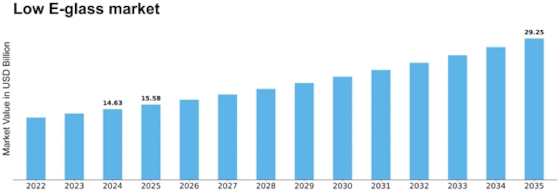


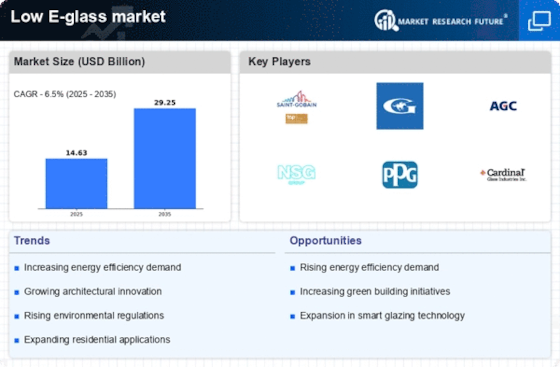
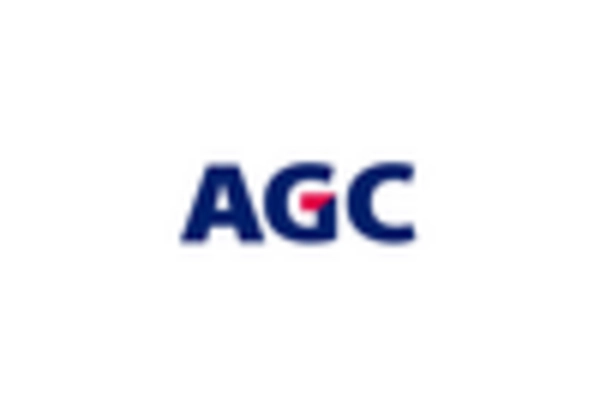
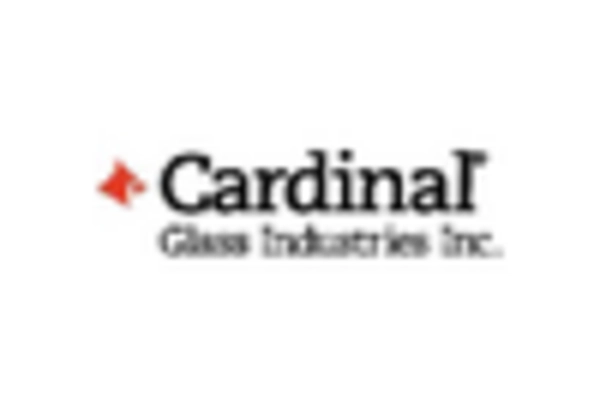
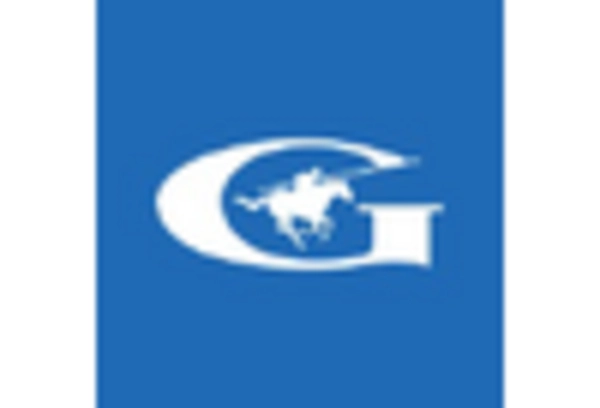
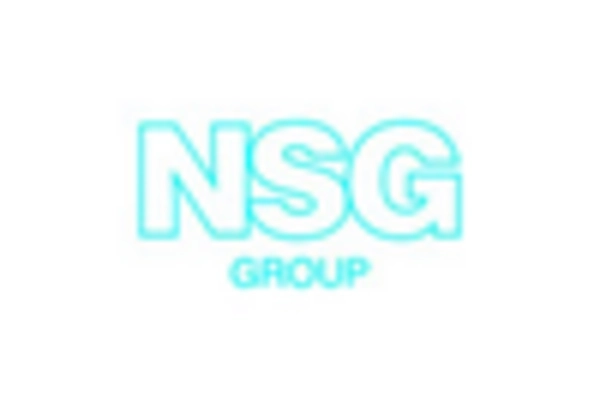
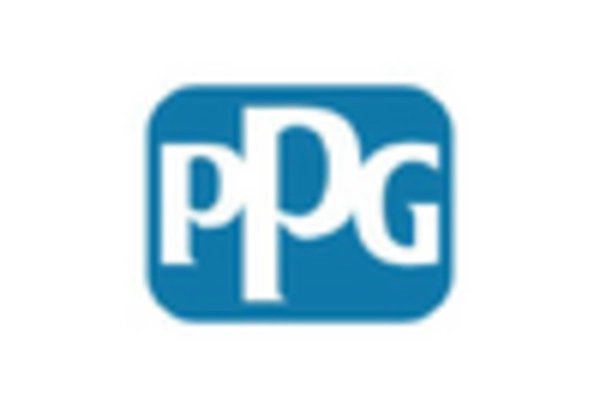










Leave a Comment